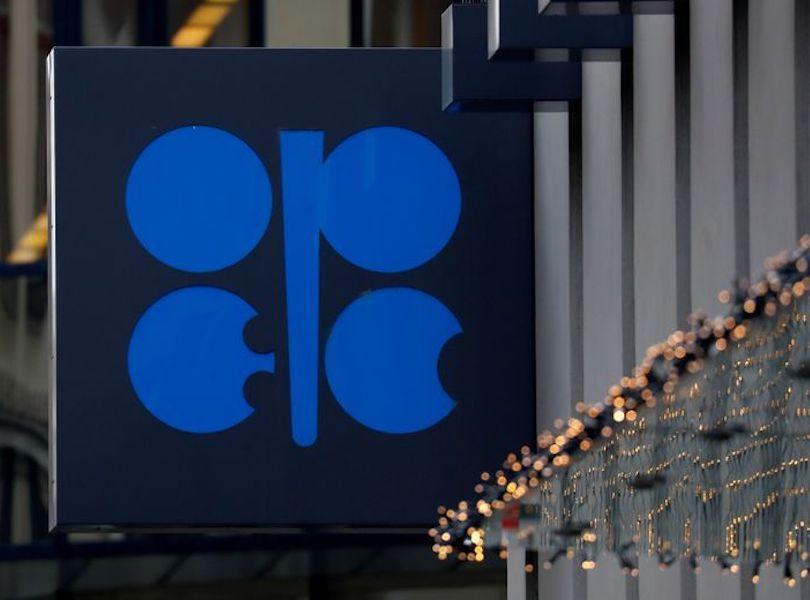By Abba Hamisu Sani
Africa-Press – Nigeria. Nigeria is the seventh largest oil exporter of oi globallyl.It has the largest oil reserves in Africa with 37 billion barrels of reserves.
Recently the Organisation of Petroleum Exporting Countries has been rocked with misunderstanding between its member Countries as leading members like Saudi Arabia propagated for the cut off of Production by its members in an effort to avoid price fall.
The situation led to the delay of its latest meeting as African countries such as Nigeria and Angola resisted the attempt.
Nigeria is seeking to have a higher 2024 target verified by OPEC at a time when the group is considering cutting output further ,rather than increasing it
In June this year (2023) OPEC cut Nigeria’s output target for 2024 to 1.38 million barrels per day for 2023,reflecting the fact that for years Nigeria had failed to meet its target.
The group ,however, agreed to give Nigeria a 2024 quota of 1.58 million barrels per day ,subject to independent verification that it could really pump that much.
OPEC decision counter productive to Nigeria’s effort
Nigeria is looking to boost output by resurrecting dormant oilfields and pushing more production onshore ,and introducing fresh measures to address security threats.
OPEC also engaged three independent consultancies -IHS,Rystad Energy and Wood Mackenzie to verify whether Nigeria as well as Angola and Congo can reach their targeted 2024 output levels.They are expected to report their findings on their meeting that took place on Thursday 30th November 2024.
The use of Independent assessments comes after past disagreements about countries oil output and production capacity ,metrics that feature in negotiations to set individual targets.
OPEC says Nigeria is not capable of producing 1.5 million barrels per day
Figures from two out of the three consultancies indicate that Nigeria’s 2024 crude output is not likely to reach 1.58 million barrels per day , potentially challenging the country’s push to the higher quota and complicating a wider OPEC agreement.
Nigeria currently produces 1.3 million barrels per day according to Rystad which it expects to rise to 1.5 million next year under its scenario.
“This is assuming to further major disruptions” Patricio Valdivieso of Rystad said in an interview with Reuters
A Source at another of the three consultancies ,which declined to be identified,said that although they had raised the estimates for Nigerian output ,they don’t expect it to hit 1.58 million next year (2024).
Nigeria’s Reactions to the OPEC Independent Consultants findings
Gabriel Tanimu Aduda is Nigeria’s governor to OPEC .He said he was not comfortable with the findings of the three consultancies. Aduda stated this in an interview with Reuters recently.
Saudi Arabia won the provisional backing for oil production cuts by the OPEC despite the objection of Nigeria and other Countries.
The meeting that provided the opportunity for this decision was held online rather than in person after being delayed from its initial date ,comes as oil producers attempt to support a price that has slipped in recent months and as tension heightened in the Middle East due to the Israel-Gaza war.
The implication of the production cut on Nigerian 2024 budget estimate
Nigeria’s production benchmark in the 2024 budget has been pegged at 1.78 million barrels per day, a development that will jeopardize the country’s budget if it accepts the 1.38 million barrels per day ceiling by the producer’ group.
Last Wednesday, the Senate approved the Medium-term Expenditure Framework (MTEF) for 2024-2026 and the Fiscal Strategy Paper (FSP), which contained projections for budget appropriations over the next three years.
Specifically, the lawmakers approved $73.96, $73.76 and $69.90 per barrel, respectively as benchmark oil prices for daily crude oil production of 1.78 million barrels per day, 1.80 million barrels per day and 1.81 million for 2024, 2025 and 2026.
However, the figures may be unrealistic, given that OPEC’s quota for Nigeria for next year,as it was in June, pegged at 1.38 million barrels per day, following its inability to meet its current allocation for about three years.
Although there were reports that OPEC was close to resolving the dispute over the output quotas which forced the group to postpone a pivotal meeting during the week, as it reviewed the demands made on Nigeria and Angola in an earlier deal, no deal has been reached.
The OPEC decision could also be described as a major setback to the Tinubu’s administration’s first budget as new government ,considering the fact that the main source of the expected revenue to finance the budget is from the oil sector .
On the other side ,this should serve as lesson to Nigerian leaders and citizens alike ,as the fund generated during the oil boom were wasted and stolen on like other countries like Saudi Arabia,United Arab Emirates ,Libya and Algeria their resources were utilized in establishing the real infrastructures,and building human resources beside savings for the rainy day.
So now is up to Tinubu’s administration to block all the leakages that make Nigeria poor despite huge oil revenue generated during the previous administrations
Other African countries like Angola and Congo should also learn the same lesson from Nigeria which lost major part of its revenue to corruption and is now agitating against the crude production cut which the OPEC member countries said is meant to safeguard itself from the threat of price fall of the oil.
For More News And Analysis About Nigeria Follow Africa-Press







